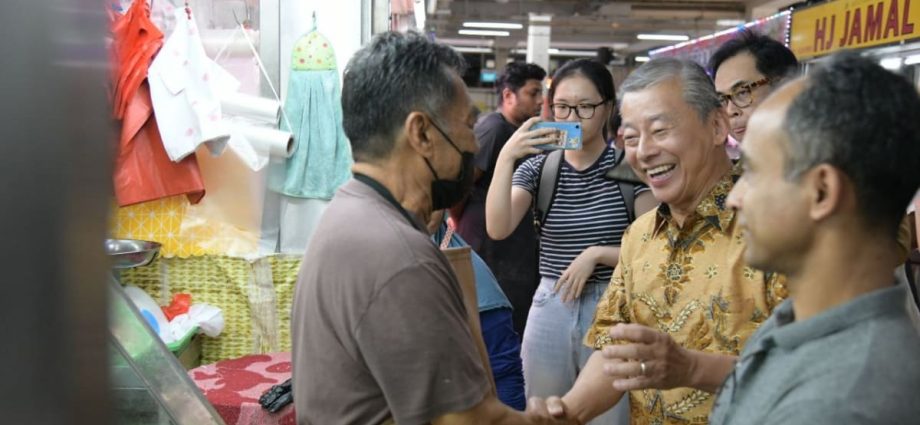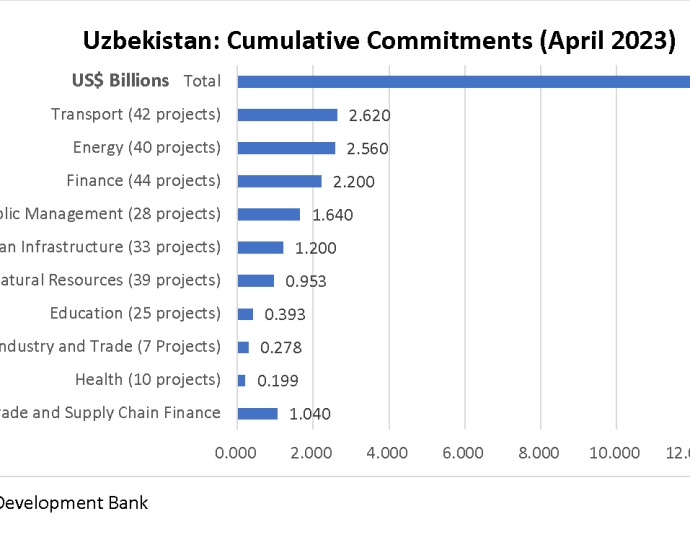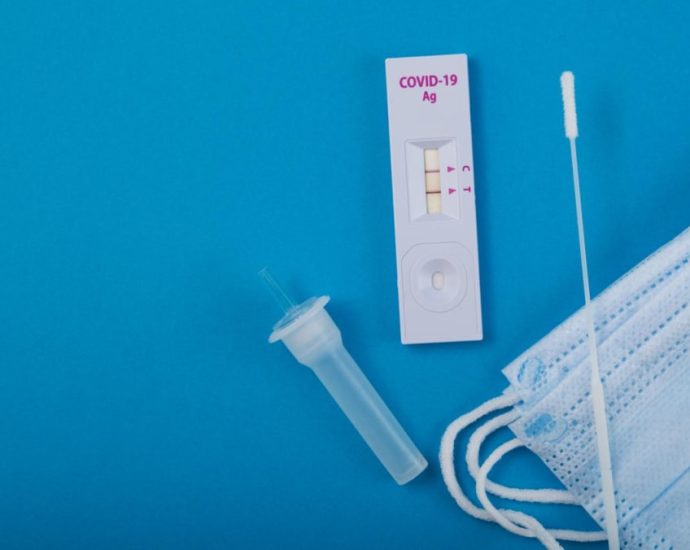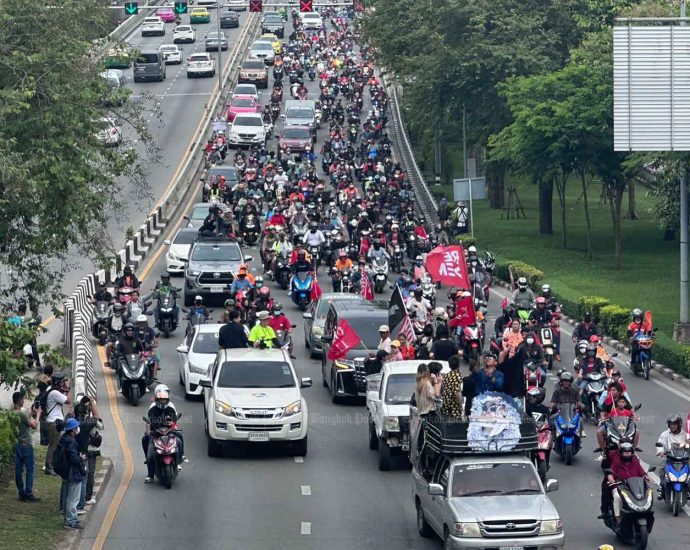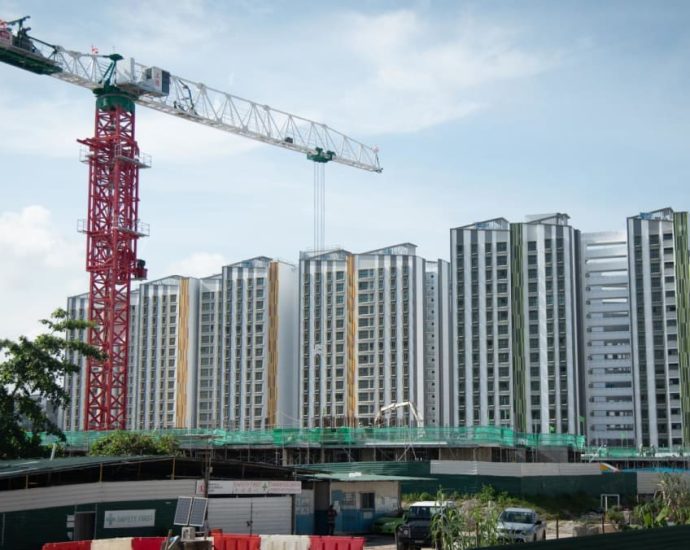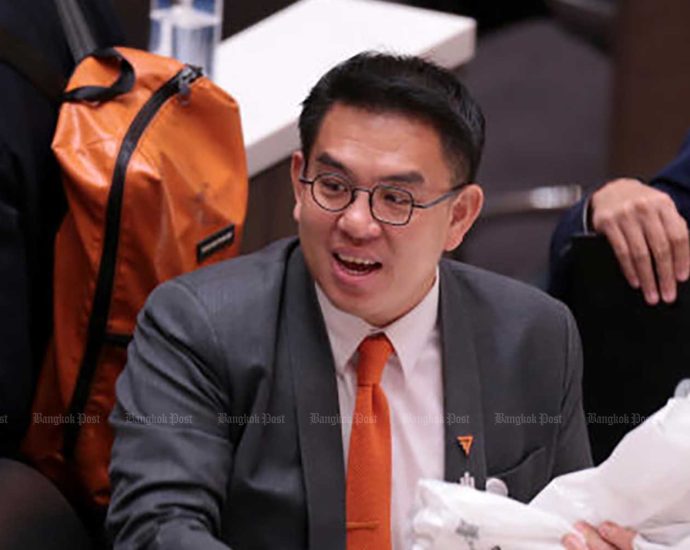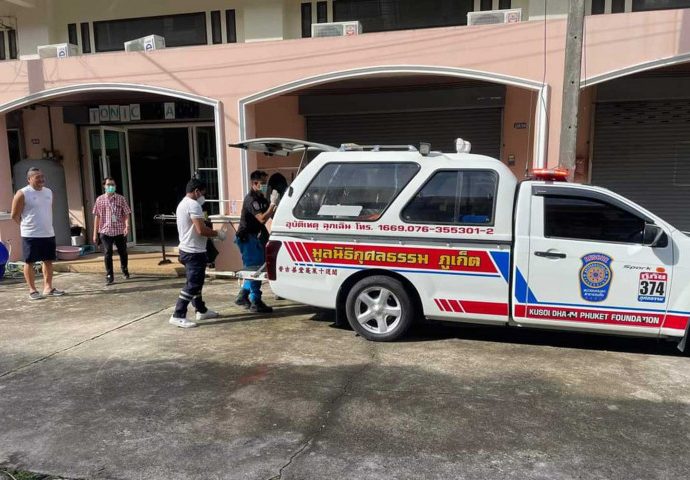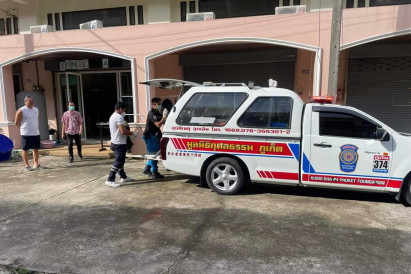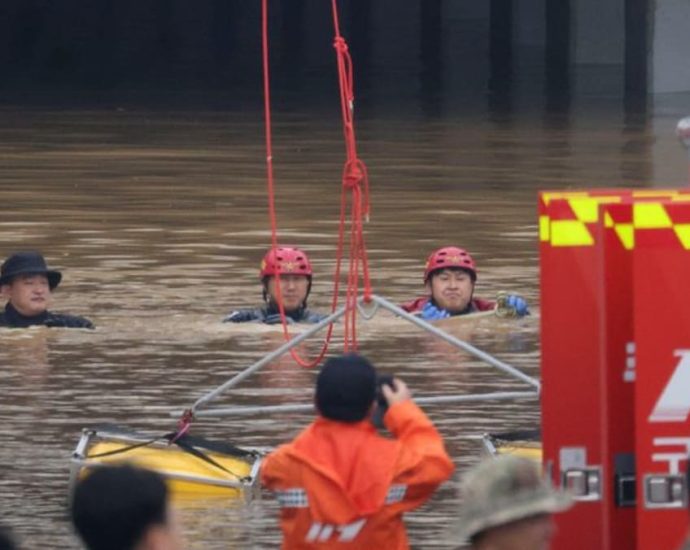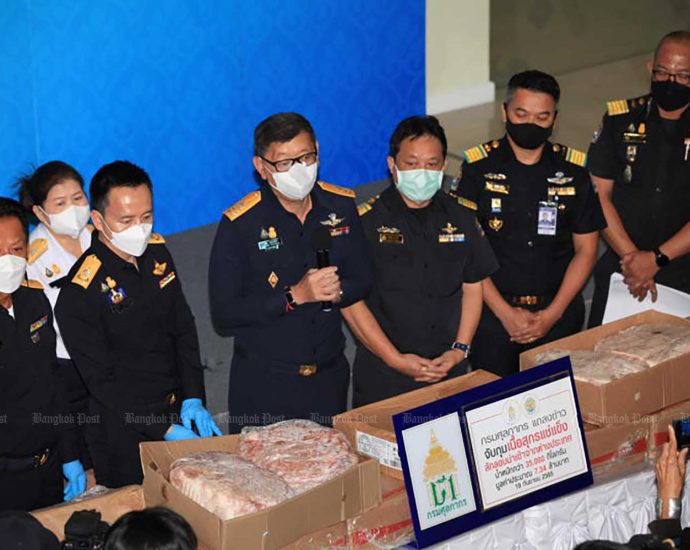Presidential candidate should not have worked in government-linked firm or sovereign wealth fund: George Goh
SINGAPORE: A potential presidential candidate should not be someone who is a senior executive in a government-linked company or is an employee of an organisation that receives investments from a sovereign wealth fund, said presidential hopeful George Goh. Mr Goh was responding to questions from the media during his visitContinue Reading
Uzbek president re-elected with 87% of the vote
Uzbek voters passed a referendum last April extending the presidential term of office from five to seven years and allowing the current president, Shavkat Mirziyoyev, to call a snap election. He lost no time in doing so.
According to the Central Election Commission, he bagged 87.1% of the vote on July 9.
The total is impressive, as it was bound to be considering he could plausibly claim credit for a strong economy and domestic peace and tranquility, had the state apparatus and media behind him as well as various “powers of incumbency,” and was fortunate enough to be facing a slate of hapless, inexperienced candidates.
But is his vote total credible?
The Organization for Security and Cooperation in Europe hinted at the absence of meaningful political opposition. Its Election Observation Mission noted that the “early presidential election was technically well prepared but took place in a political environment lacking genuine competition.” Fair enough, but that hardly settles the matter of electoral credibility one way or the other.
Landslide victories, whether in Uzbekistan or elsewhere, may or may not call into question the legitimacy of the electoral process, but they do raise doubts about the viability of challengers and the dearth of capable alternative choices (see my Asia Times article “Kazakhstan presidential vote – scam or real deal?”).
But one cannot discount the possibility that Mirziyoyev’s victory reflects his personal popularity and demonstrated ability to govern effectively in a nascent democracy.
Consider the case of India’s Narendra Modi. He had a personal approval rating of 87% when he took office in 2014 and his government’s approval rating stood at 93%, according to Pew Research. Now, eight years later, his personal popularity stands at 73%, according to The Times of India.
Or take Hungary’s Viktor Orban. Last year, he won his fourth consecutive electoral victory, handily defeating his opposition, much to the consternation of Brussels and the international media.
In parliamentary systems, it is rare to achieve an absolute majority, but Modi and Orban have done so several times in a row. While the opposition alleges that their victories were the result of bullying, intimidation and fraud, it is hard to prove that a head of state’s electoral triumph was bogus just because he won by a huge margin. It could just as well be that voters approved of his policies, governing skills, and personal traits.
Advantage goes to the president
In the run-up to the election, Mirziyoyev was able to exploit his advantage as a recognized international statesman, which none of his opponents could begin to do. In Uzbekistan, he is known as a skilled head of state who represented the country’s national interests and aspirations without kowtowing to the Great Powers or taking sides in the so-called Great Game.
Over the past months, his trips overseas have boosted his domestic prestige. Who else could have met with Iranian President Ebrahim Raisi (a move not viewed in Uzbekistan as evil in itself) or landed major agreements with the other Central Asian republics and the European Union or expanded pan-Turkic engagement with the support of the presidents of Azerbaijan, Tajikistan and Turkey?
What’s more, Mirziyoyev tapped into an emergent national populism that rejects neoliberal economics and refuses to sacrifice the common good to the gods of efficiency and the interests of global capital.
Social and political stability
During the campaign, Mirziyoyev took credit for a relatively strong economy and rode it to victory. The International Monetary Fund recently projected real GDP growth this year of 5.3%.
Mirziyoyev met this summer with the vice-president of the World Bank and could point to significant progress in developing bilateral partnerships worth some US$11 billion. He also capitalized on major investments from the European Bank for Reconstruction and Development and the Asia Development Bank.
Over the past several years, Mirziyoyev has been working – with considerable success – to transform the country’s largely Soviet-style economy to one based mainly on free enterprise. In so doing, he has resisted intemperate calls for the total sell-off of Uzbekistan’s national assets to the usual assortment of carpetbaggers, leeches and no-goodniks who regularly materialize in Tashkent preaching the Gospel of Progress.
Mirziyoyev’s call in May for a Third Renaissance resonated with the people.
His pitch “to build new schools, kindergartens and hospitals, to raise the quality of education and medicine, to address the problems of water and energy supply, roads and transportation, to increase the number of workplaces, to create the new opportunities for entrepreneurship, and to ensure justice, to eradicate bureaucracy and corruption” might have rung hollow in view of the country’s lamentable legacy of corruption and nepotism, but apparently did not.
Deeds over words
Although Mirziyoyev’s access to the media gave him a decided advantage over his opponents, that’s the case whenever incumbents are up for re-election. Even if ballot-box stuffing and/or other forms of fraud and “administrative measures” were employed, they may have padded the president’s total but probably didn’t make much difference.
It makes more sense that he convinced the electorate, just as Modi and Orban have done, that he would continue to reform the economy without abandoning the poor and the middle class, increase their access to credit, medicine and education, manage the Great Powers at a time of unprecedented peril, and chip away at decades of ingrained corruption and nepotism.
Interestingly, the major media’s coverage of the election has been unusually muted, signaling that Brussels and London may be changing their emphasis in dealing with Tashkent – more carrot and less stick.
For Washington’s part, the US Embassy, in its post-election statement, could only say that it “notes” popular support for Mirziyoyev while urging respect for the rule of law, checks and balances and individual rights.
Be that as it may, Mirziyoyev’s challenge now is to breathe life into his electoral promises and stay out of foreign entanglements. He must carry on with the transformation of society and the economy without selling out the poor and emergent middle class. If he fails to do so, the goodwill he now commands is likely to evaporate quickly.
Households in Singapore to receive six ART kits from Jul 17

SINGAPORE: From Monday (Jul 17), each household in Singapore will receive six antigen rapid test (ART) kits, said the Ministry of Health (MOH) on Sunday.
The distribution will last until Sep 30 and the kits will be drawn from the national stockpile which was built to mitigate supply chain disruptions and sudden surges in usage, MOH added in a press release.
The current batch of ART kits have a remaining shelf life of about six months, as the stockpile needs to be refreshed to maintain resiliency.
“The distributed ART kits are expected to expire in the first quarter of 2024,” said MOH.
The ministry added that the usable period of the ART kits can still “cover the year-end”, coinciding with the Northern Hemisphere winter season, during which respiratory viruses including influenza and COVID-19 may spread more easily globally.
“Many also take overseas vacations during this period and the kits will help families to take additional precautions where needed.”
With the shift towards COVID-19 endemicity, MOH advised Singaporeans to take measures to protect themselves and their families, especially seniors and medically vulnerable people.
It added that people who test positive with an ART test “should regard themselves as being infected with COVID-19”.
They should avoid close contact with others while still symptomatic and return to normal activities when their symptoms resolve.
Car rally demands anti-Pita senators quit

About 700 people using 500 cars and motorcycles joined a rally in central Bangkok on Sunday afternoon to demand the resignation of the senators who did not vote for prime ministerial candidate Pita Limjaroenrat of the election-winning Move Forward Party on Thursday last week.
The demonstrators first gathered at Democracy Monument and then moved to the headquarters of the navy, the army and the police.
The chiefs of the armed forces and the police as well as the chief of the defence forces and the permanent secretary for defence, all senators, were absent from the joint sitting of the House and the Senate last Thursday when parliamentarians held their vote on Mr Pita, the then sole prime ministerial candidate and leader of the Move Forward Party.
Leading the demonstration, activist Arnon Nampa said that if those senators resigned, the threshold majority vote from the House and Senate would be sufficient for Mr Pita to become prime minister.
“It (the resignation) would reduce the votes of senators and the number of (majority) votes needed to elect the pro-democracy parties to be lower than 376,” Mr Arnon said.
The military-drafted constitution allows 250 unelected senators to join the vote on prime minister together with 500 elected House representatives.
Mr Arnon called on senators to vote for Mr Pita in the next round of the prime ministerial vote. He said Mr Pita was the prime ministerial candidate of the eight political allies which had a majority in the House, 312 out of 500 votes.
“We ask the senators who will join the next vote to respect the people’s choice by voting in favour of the eight coalition parties,” he said.
On Thursday last week just 13 of 249 senators voted in favour of Mr Pita.
Mr Arnon said that demonstrators gave their moral support to the 312 House representatives and the 13 senators who voted for Mr Pita last week.
Regarding the car rally on Sunday, the activist said he hoped the activity would encourage people nationwide to come out and show their support in accordance with their choice in the May 14 general election.
“I would like people to get up and fight for a national administration by a pro-democracy government,” Mr Arnon said.
“The most politically legitimate person (as the new prime minister) is Mr Pita Limjaroenrat, leader of the Move Forward Party which won the election,” he said.
He urged the eight coalition parties to remain united. If the Move Forward Party or the Pheu Thai Party joins forces with any political party from the caretaker government, people will curse them, Mr Arnon said.
MFP and Pheu Thai are the two main parties in the eight coalition alliance.
After visiting the headquarters of the army, the navy and the police, the car rally was set to reach its destination at the front of the Bangkok Art and Culture Centre in Pathumwan area.
Average compensation of S$3,000 for Anchorvale Village flat buyers due to completion delay

SINGAPORE: Nearly 200 flat buyers of Anchorvale Village will be eligible for compensation of between S$1,100 (US$830) and S$4,500 for the completion delay brought about by the COVID-19 pandemic.
This comes as the Housing and Development Board (HDB) on Sunday (Jul 16) announced the completion of 12,000 flats across 16 projects in the first half of 2023 – both the highest figures compared with the same period since 2018.
Among the completed projects is Anchorvale Village in Sengkang where the residential blocks were delayed beyond their delivery possession date, which refers to the legal contractual date by which HDB is required to deliver possession of the flat.
Under the COVID-19 (Temporary Measures) Act, flat buyers whose flats are delayed beyond the delivery possession date will be able to seek reimbursement for qualifying costs.
The residential blocks were completed in June, five months after the project’s original delivery possession date of January 2023.
A total of 197 households of Anchorville Village who booked their flats by May 4, 2022 are eligible for the reimbursement, said HDB in a news release.
“To minimise inconvenience to flat buyers, HDB will be offering to pay flat buyers of Anchorvale Village the maximum reimbursement sum that they would be eligible for, without them having to submit any claims/proof of the expenses,” said the Housing Board.
The buyers will receive the reimbursement within two months after completing the flat purchase and accepting the settlement agreement.
The estimated amount for the affected flat buyers ranges from S$1,100 to S$4,500, with the average reimbursement sum being about S$3,000.
The total reimbursement amount for all 197 households is estimated to be about S$600,000, said HDB.
Flat buyers were invited to collect their keys on Jul 10, said HDB, with 115 households having done so to date.
Anchorvale Village is one of the two BTO projects delivered past its delivery possession date, the other being Waterway Sunrise II.
“With the successful completion of Anchorvale Village, HDB has handed over both delayed projects, despite the challenges posed by COVID-19,” said HDB.
Move Forward Party firm on changing lese majeste law
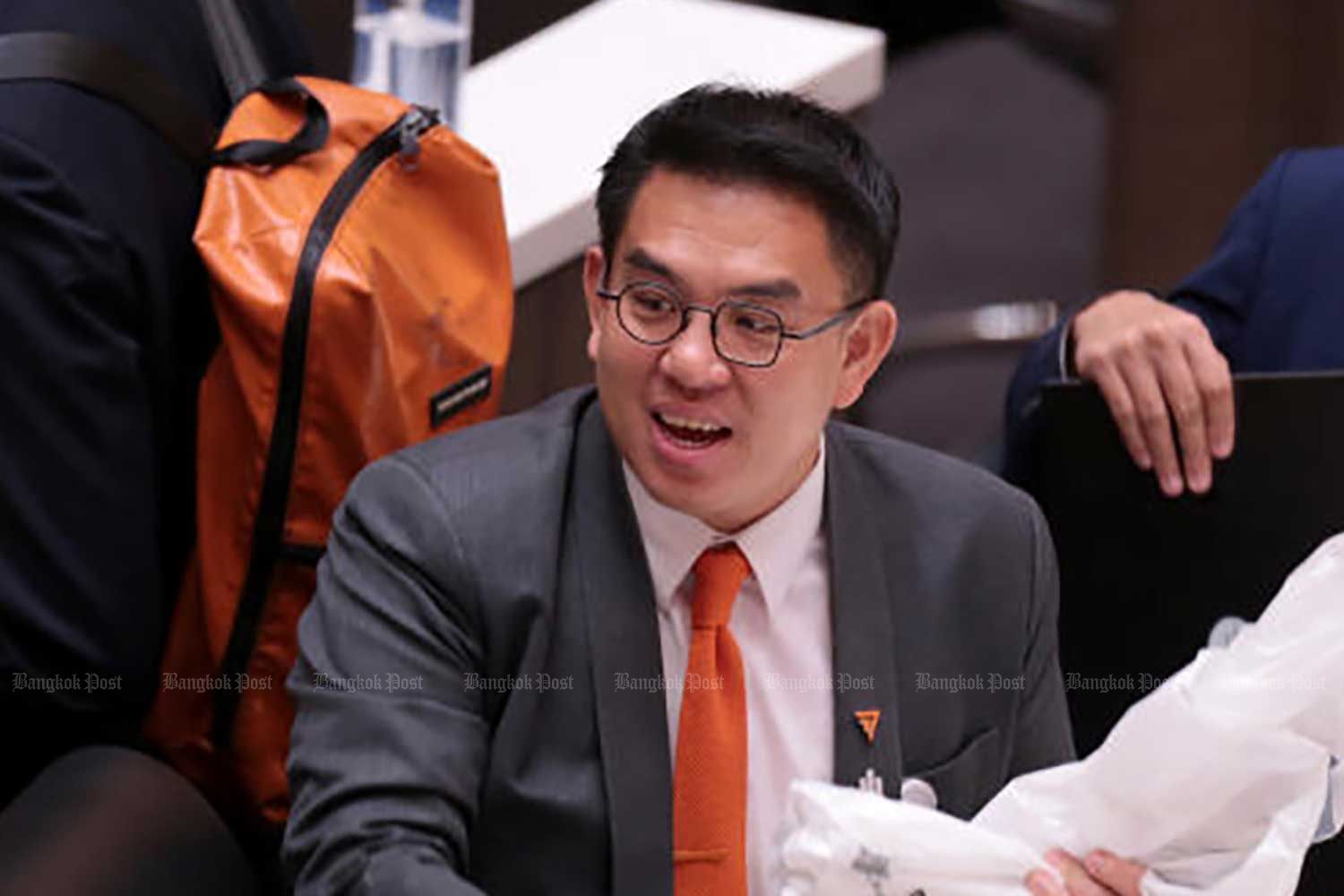
Move Forward Party (MFP) MPs have confirmed they will push for an amendment to the lese majeste law because their party promised to do so during their election campaign, and voters had supported them.
MFP list MP Wiroj Lakkhanaadisorn wrote on social media that his party would keep the promises it made to people; otherwise, people would no longer support them.
“If we break our promises in order to ascend to power, the people who are the boss and have been on our side will abandon and even curse us,” he wrote.
Mr Wiroj was apparently responding to some parliamentarians’ recent suggestion that they would vote for MFP prime ministerial candidate Pita Limjaroensuk if the party backed down on its Section 112 amendment plan.
Mr Wiroj promised that amending Section 112 of the Criminal Code, or the lese majeste law, would be done carefully, all parties concerned would have their say and MFP would amend it in compliance with parliamentary rules.
The change would take time, he wrote.
Move Forward MP for Bangkok Sasinan Thammanithinan said the party had promised people during its election campaign that it would amend the law. Its victory in the May 14 general election showed that people agreed with the party, he said.
The amendment might not be a priority in the first few years of the new government but MFP wanted at least to start the process regardless of its outcome, he said.
Korean woman, 2 cats die in apparent Phuket charcoal suicide

PHUKET: A South Korean woman was found dead along with two cats in a house in Muang district on Sunday. A cooking pot filled with charcoal connected to an electric plug was believed to be the cause of the deaths.
Pol Capt Jaras Lekpan, an investigator at Chalong police station, said police and rescuers went to the house in Villa Soi 1 in tambon Chalong after being alerted to the deaths.
The Korean woman, identified later as Mi Jung Park, 43, and two cats were found lying dead in the bathroom. A cooking pot filled with charcoal connected to an electric plug was found near them.
The woman’s husband, who worked in Surat Thani, told police that he found his wife and the two cats dead when he returned to the house on Sunday, prompting him to contact authorities.
He said he recently had a quarrel with his wife who said she felt she was neglected by him and wanted to die.
It was initially believed she took her own life with charcoal smoke.
Police were investigating. The woman’s body was sent to Chalong Hospital for an autopsy to establish the cause of death.
Korean woman, 2 cats, found dead in Phuket house

PHUKET: A South Korean woman was found dead along with two cats in a house in Muang district on Sunday. A cooking pot filled with charcoal connected to an electric plug was believed to be the cause of the deaths.
Pol Capt Jaras Lekpan, an investigator at Chalong police station, said police and rescuers went to the house in Villa Soi 1 in tambon Chalong after being alerted to the deaths.
The Korean woman, identified later as Mi Jung Park, 43, and two cats were found lying dead in the bathroom. A cooking pot filled with charcoal connected to an electric plug was found near them.
The woman’s husband, who worked in Surat Thani, told police that he found his wife and the two cats dead when he returned to the house on Sunday, prompting him to contact authorities.
He said he recently had a quarrel with his wife who said she felt she was neglected by him and wanted to die.
It was initially believed she took her own life with charcoal smoke.
Police were investigating. The woman’s body was sent to Chalong Hospital for an autopsy to establish the cause of death.
Rescuers retrieve eight bodies from flooded South Korea underpass
CHEONGJU: The bodies of eight people trapped in a tunnel submerged by heavy rain in central South Korea were retrieved on Sunday (Jul 16), authorities and local media said, taking the death toll from days of torrential downpours that have pounded the country to 35. Seo Jeong-il, head of theContinue Reading
Pork smuggling into Thailand soars

The amount of smuggled pork seized this year soared by 10-fold from the total last year due to high local pork prices, according to the Customs Department.
Patchara Anuntasilpa, director-general of the department, said that this year customs officials have seized 4.7 million tonnes of smuggled pork, almost 10 times the 480,000 tonnes of smuggled pork his department impounded throughout last year.
The department intensified its inspections of all frozen imports over recent months because their recorded amount was unusually high this year. The increased searches found quantities of smuggled pork which was falsely declared as frozen fish, he said.
“In 2022 and 2023 local pork has been very expensive, more than 200 baht per kilogramme. The high prices prompt groups of people to source pork from Europe and South America for sales in Thailand,” Mr Patchara said.
The Customs Department suspended the licences of shipping agents involved in pork smuggling and was coordinating the disposal of smuggled pork with the Livestock Development Department, he said.

